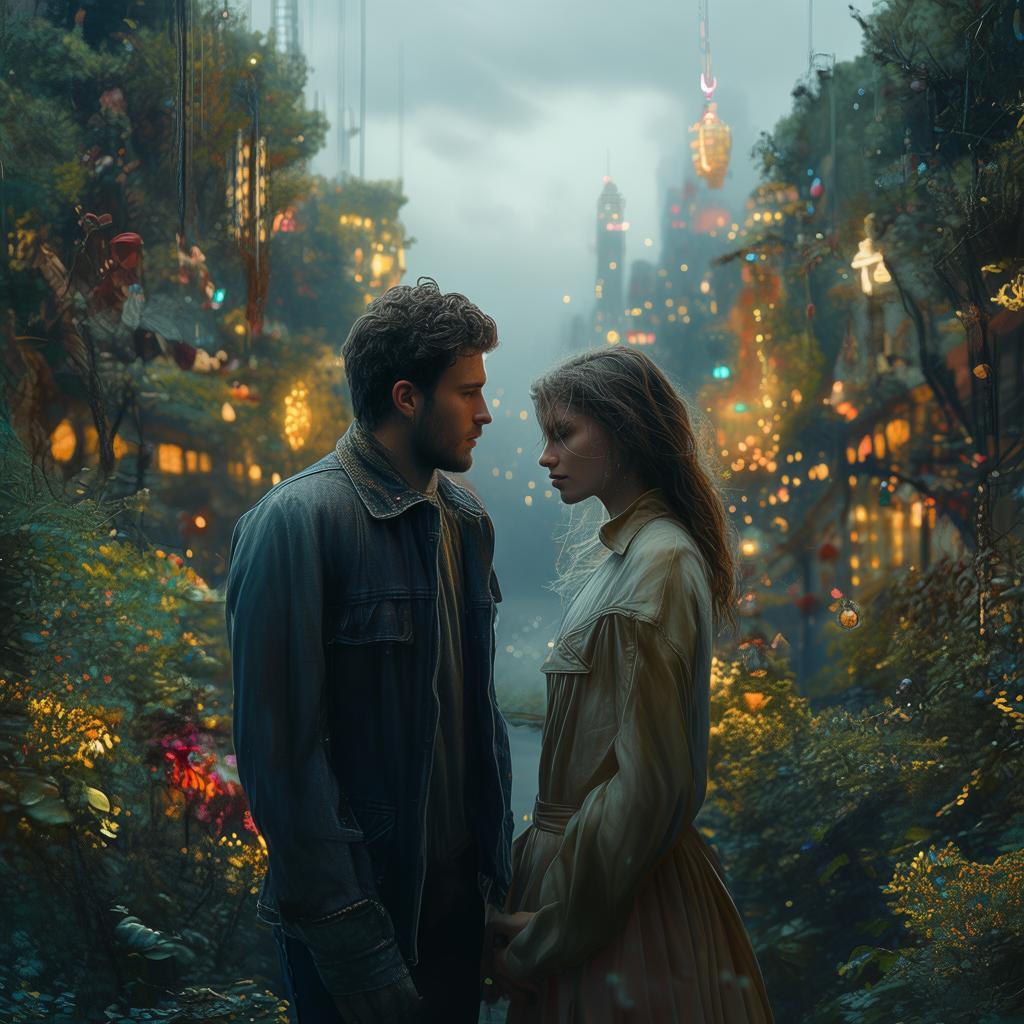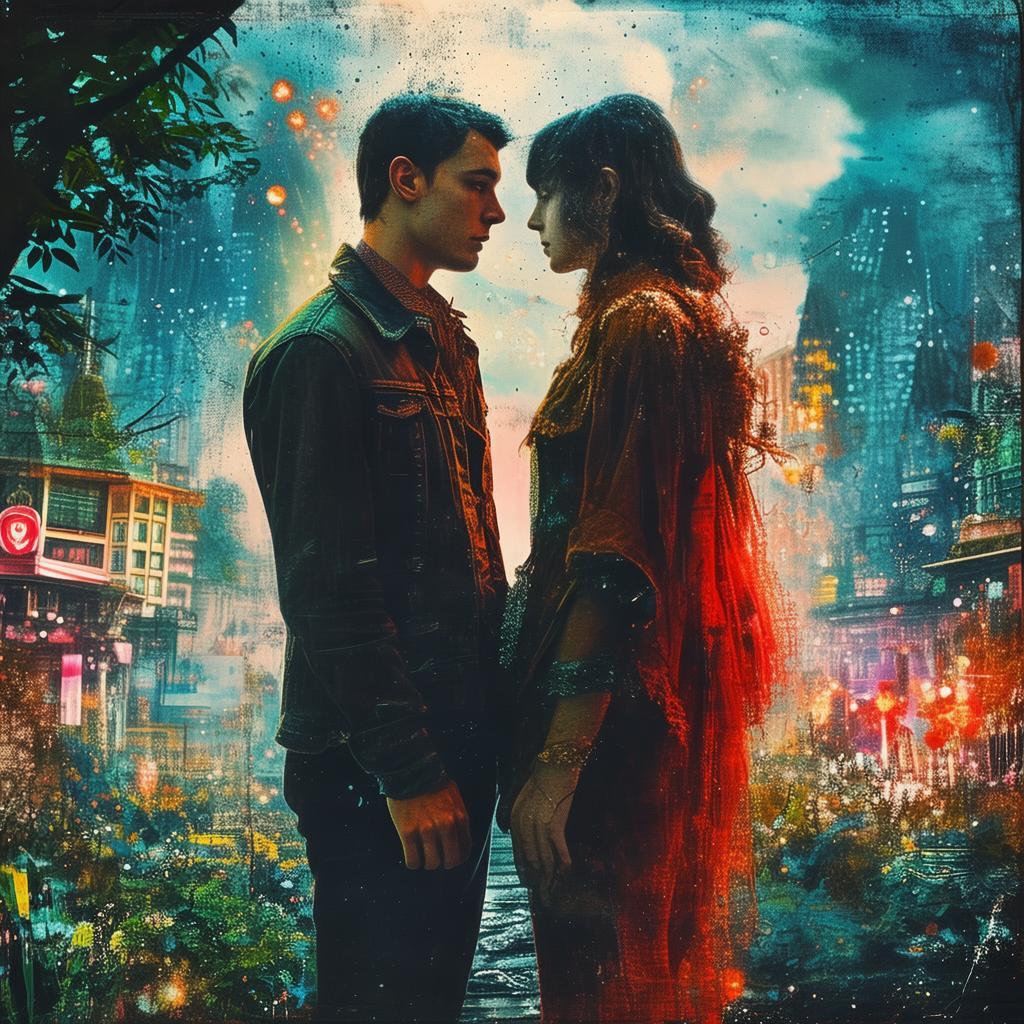Shadows of the Silver Screen
In the bustling city of Yilang, where the neon lights danced with the rhythm of the night, there lived a young man named Yilang. He was an aspiring filmmaker, his heart brimming with dreams and his eyes filled with the hope of capturing life's fleeting moments on film. Yet, life had dealt him a series of setbacks, and the only solace he found was in the world of cinema.
One rainy evening, as Yilang wandered through the dimly lit streets, he stumbled upon a small, unassuming cinema. The sign outside flickered weakly, advertising a film that had been overlooked by the world. Intrigued, he pushed open the creaky door and stepped into the dimly lit auditorium. The air was thick with the scent of old popcorn and the anticipation of something extraordinary.
The film, titled "The Mirror of the Soul," was a story about a man who discovers that his life is a reflection of the choices he has made. The protagonist, like Yilang, was a filmmaker caught in a web of personal tragedy and professional struggle. As the movie unfolded, Yilang found himself increasingly drawn into the narrative, his breath catching with each twist and turn.
The climax of the film reached its crescendo as the protagonist faced a moral dilemma: to save the woman he loved, he must betray her. The decision torn him apart, and as the credits rolled, Yilang felt a strange kinship with the character. He left the cinema that night with a heavy heart, the film's final scene replaying in his mind.
The next day, Yilang's life took an unexpected turn. He received a call from an old friend, Fang'an, who had been missing for years. Fang'an had been a renowned actor before vanishing into the shadows. The two friends met in a secluded café, and Yilang was shocked to see the changes that time had wrought on his friend. Fang'an's eyes were hollow, his face etched with the lines of a man who had seen too much pain.
As they spoke, Yilang realized that Fang'an's disappearance was connected to the film "The Mirror of the Soul." It was rumored that the movie was based on Fang'an's own life, and that the betrayal he had committed on screen was a reflection of his real-life actions. Yilang's curiosity was piqued, and he decided to help his friend uncover the truth.

Together, they delved into the film's production history, uncovering a series of secrets that revealed the movie's profound impact on Fang'an's life. They discovered that the film had been made by a reclusive director who had since vanished, leaving behind only a cryptic message: "The truth is not what you see, but what you choose to believe."
As they followed the clues, Yilang and Fang'an found themselves entangled in a web of deceit and love. They discovered that the protagonist's betrayal was not an act of malice, but a desperate attempt to save the woman he loved. The revelation shook Yilang to his core, and he began to question his own beliefs about love and loyalty.
In the end, Yilang and Fang'an uncovered the truth about the film's director: a man who had been in love with the protagonist's wife and had used his art to tell their story. The director had chosen to leave the film's ending ambiguous, allowing viewers to interpret it as they saw fit.
The revelation brought Yilang and Fang'an to a crossroads. Yilang realized that the film had been a mirror, reflecting not only the lives of its characters but also his own. He realized that the choices he had made in his life had been shaped by his own fears and desires.
Fang'an, on the other hand, found redemption in the knowledge that his actions had been driven by love, not malice. He decided to confront the woman he had betrayed and make amends for his past mistakes.
As the two friends walked away from the café that night, they felt a sense of peace. They had uncovered the truth, and in doing so, they had found a way to move forward. Yilang's love for film had deepened, and he knew that he would use his art to tell stories that resonated with the truth of human experience.
In the end, the film "The Mirror of the Soul" had not only changed Yilang's fate but had also transformed the lives of those who had watched it. It was a testament to the power of storytelling, the enduring nature of love, and the importance of facing the truth, no matter how difficult it may be.
✨ Original Statement ✨
All articles published on this website (including but not limited to text, images, videos, and other content) are original or authorized for reposting and are protected by relevant laws. Without the explicit written permission of this website, no individual or organization may copy, modify, repost, or use the content for commercial purposes.
If you need to quote or cooperate, please contact this site for authorization. We reserve the right to pursue legal responsibility for any unauthorized use.
Hereby declared.









